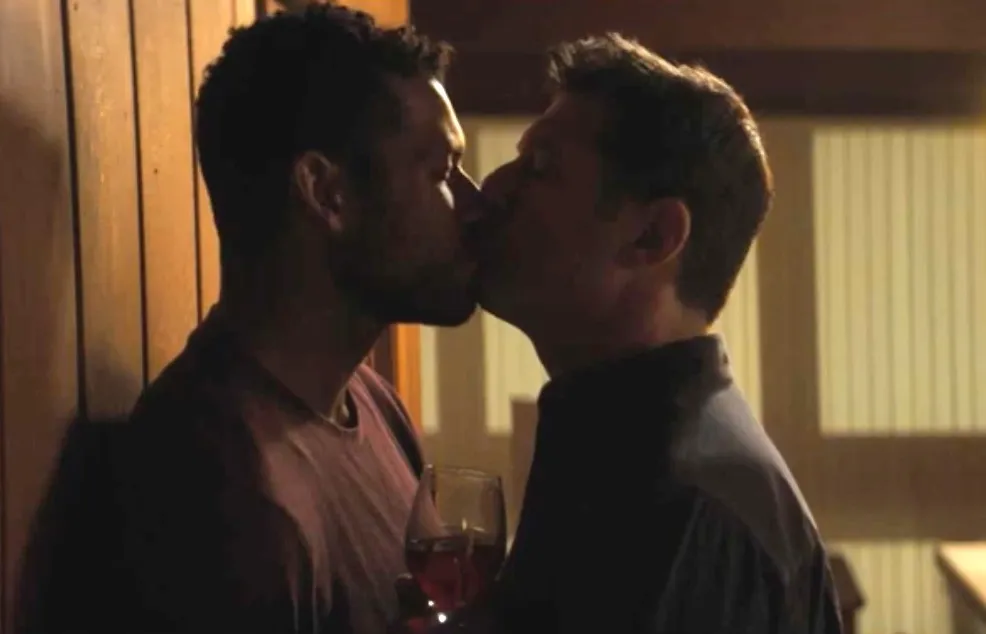Jeffrey Bowyer-Chapman leads the cast of a new horror film that follows a gay couple dealing with terrifying, homophobic neighbours after they move to a rural setting.
The actor and model, who has recently appeared as a judge on Canada’s Drag Race, plays gay man Malik in Spiral.
In the film, Malik and his partner Aaron (Ari Cohen) move to a small town with their 16-year-old daughter in search of a better life.
But their rural idyll quickly turns into a nightmare as it becomes clear that their neighbours aren’t quite as welcoming as they initially appear.
In the trailer, a neighbour called Tiffany tells the couple that “love is all that matters” when they move into their new home – but that accepting attitude quickly disintegrates.
Jeffrey Bowyer-Chapman faces off against homophobic neighbours in Spiral.
Malik goes on to discover that a lesbian couple were killed in the area 10 years before – and he comes to believe that he and his partner have been “chosen” for a ritual that takes place once every decade.
Spiral, written by Colin Minihan and John Poliquin, also stars Ty Wood, Chandra West and Lochlyn Munroe, and is directed by Kurtis David Harder.
The psychological horror film explores themes of ostracisation, otherness, and the rejection that many LGBT+ people face in their communities.
Speaking to The Hollywood Reporter about the new film, Bowyer-Chapman said Spiral was filmed two years ago, but is more relevant now than ever.
“The fact that it’s coming out right now really is a perfect time,” he said.
“I think it’s not only socially relevant in terms of what’s going on in the world in terms of the Black Lives Matter movement, and police brutality against Black bodies, but the level of awareness from the Caucasian population of the world at large.
“People who exist within the status quo are beginning to see the nuances of things that have been occurring behind the scenes, and yet right in front of our very eyes for decades and centuries.
“The fact that this world is built on a foundation of white supremacy is not something that people would be able to identify or acknowledge six months ago.”
He said the film “humanises emotions, no matter who you are, where you come from, what your race or gender or sexual orientation may be”.
“It shows that we have far more in common than what separates us.”
